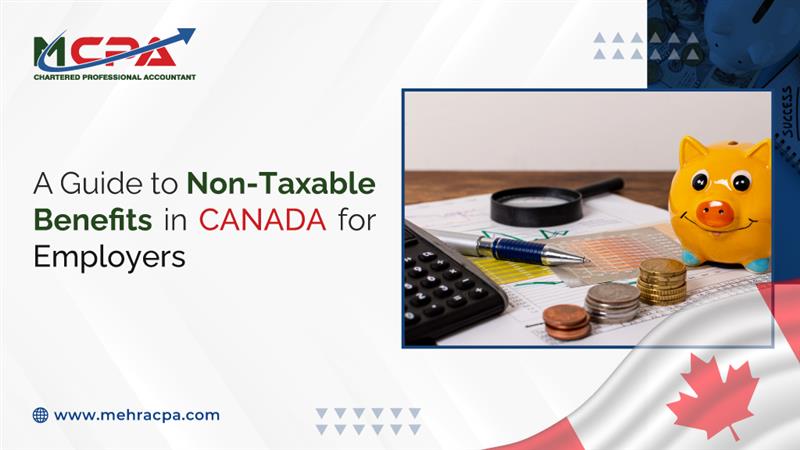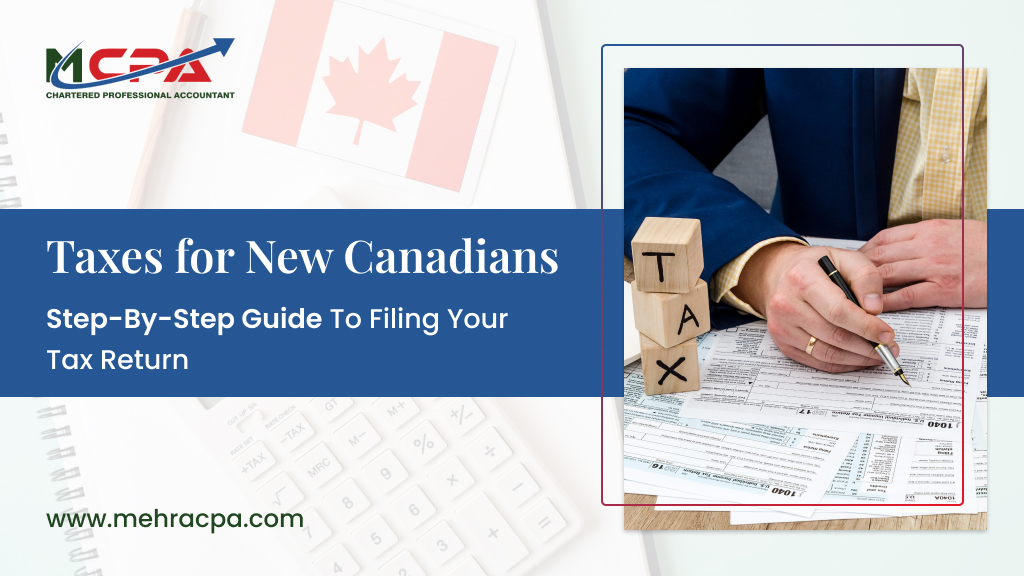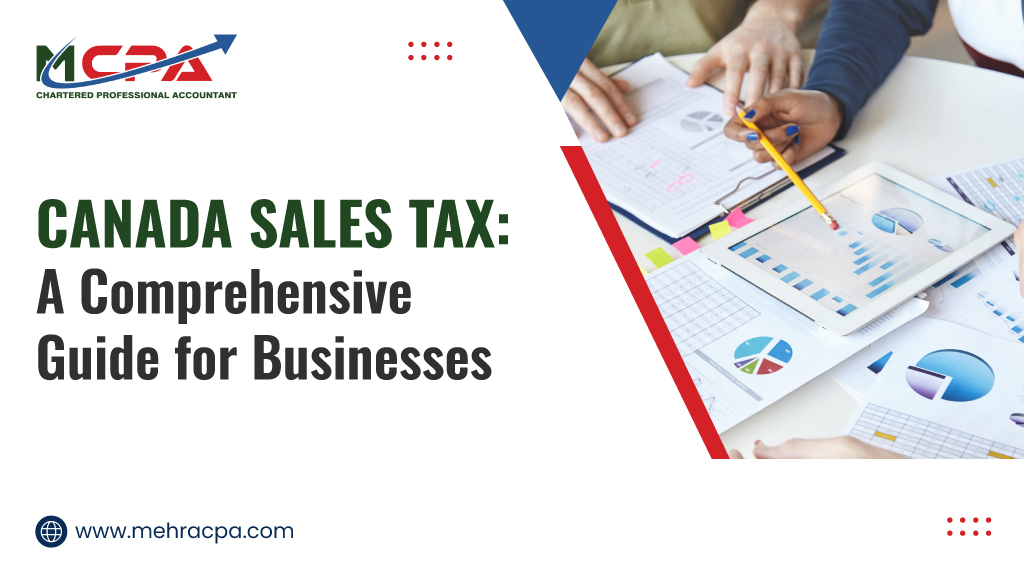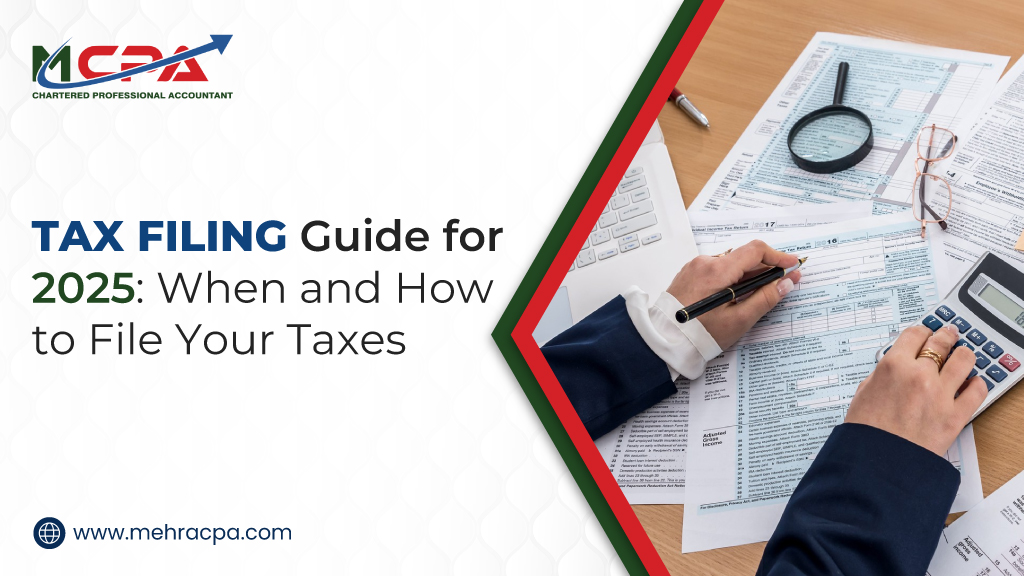
Recent Post
2025 Canadian Tax Deadlines: Everything You Need to Know
Every year, Canadians are required to file their taxes on…
Taxes for New Canadians: Step-by-Step Guide to Filing Your Tax Return
Moving to Canada is an exciting journey filled with new…
Canada Sales Tax: A Comprehensive Guide for Businesses
What is Sales Tax? If you own a business in…
Tax Filing Guide for 2025: When and How to File Your Taxes
Filing taxes can seem like a daunting task, but with…
In the competitive Canadian job market, it has come to represent part of a bundle of attractive benefits that employers must use to win over the right talent and retain it. While increases in salaries and bonuses remain the norm, non-taxable benefits are remarkably attractive. These have benefits not only in terms of job satisfaction and overall well-being but also with regard to tax burdens attributable to other forms of compensation. This is an all-comprehensive guide; here we look at the non-taxable benefits, their distinctions, their significance, and the top offerings for Canadian employers.
What are Non-Taxable Benefits for Employers in Canada?
Non-taxable benefits represent the perks and compensations offered by employers and are not added to the taxable income of the employee. Provided that they comply with guidelines from the Canada Revenue Agency, non-taxable benefits are tax-exempt. Non-taxable benefits are in high demand among employees since they do not contribute to increased tax deductions or takeaways from one’s salary.
For instance, health insurance, employee assistance programs, some training costs, and transportation allowances can be well-established non-taxable benefits. Non-taxable benefits have the potential to improve the financial well-being of a worker by providing fundamental benefits without increasing taxable income. This is a win-win situation for employers and employees.
How Do Non-Taxable Benefits Differ from Taxable Benefits?
It is important for employers to know the difference between taxable and non-taxable benefits. This would enable employers to provide cost-effective and attractive benefit packages to their employees:
- Taxable Benefits: These are benefits that the CRA deems part of the income of an employee, therefore subject to deductions for income tax, Employment Insurance (EI), and Canada Pension Plan (CPP) contributions. Examples include bonuses, allowances not tied to specific expenses, and company cars used for personal purposes.
- Non-Taxable Benefits: In contrast, employees do not record such benefits as income. Thus, employees receive these benefits without having extra tax deductions. Some examples include payments made by an employer for health insurance premiums, enrollment in an on-site gym, or some forms of tuition allowance.
Designing benefit packages and following CRA rules carefully can help employers maximize tax-exempt benefits.
Why Should Employers Offer Non-Taxable Benefits?
Providing non-taxable benefits is more than ticking the boxes; it has real business and employee benefits that make it a smart strategic play for employers to invest in these choices. Here’s why you should look into them:
- Attracting Top Talent: A strong package of non-taxable benefits can make an organization more desirable for job seekers. With growing competition for skilled workers, these perks can be the difference-makers in terms of recruitment.
- Employee Loyalty and Retention: Employees feel valued through comprehensive benefits and, therefore, stick around with their employers. Non-taxable benefits, such as health coverage and professional development support, would show that the company cares about employees’ well-being and growth, thereby reducing turnover, improving loyalty, and bringing a sense of satisfaction.
- Employee Well-Being: As for those non-taxable benefits, they often take the form of wellness programs, health coverage, and work-life balance perks, significantly enhancing employees’ quality of life, reducing stress, and providing a healthier and more content workforce.
- Less Costly than Salary Bases: In addition, using non-taxable benefits rather than focusing solely on salary increases means that the base value of compensation packages can increase without the higher taxes levied on the employee or the greater payroll taxes the business incurs.
Who Qualifies for Non-Taxable Benefits?
Eligibility for tax-free benefits may vary depending on the existence of company policies, individual employee status, and the type of benefit provided. Generally, the following are eligible:
- Permanent Full-Time Employees: The majority of firms provide full packages of tax-free benefits to permanent full-time employees due to the importance of this class of employees to the firm.
- Part-time Employees: Many firms provide non-taxable benefits to part-time employees; however, these are granted on a more reduced scale according to working hours.
- Temporaries and Contract Employees: Eligible contract employees may be allowed some non-taxable benefits, but these may be limited compared to permanent staff employees, at the discretion of the organization.
- Employees on Leave: Certain non-taxable benefits, such as health insurance coverage, remain available to employees on parental, sick, or other approved leaves of absence depending on company policy.
A major consideration for an employer in going through CRA guidelines is to ensure compliance and maximize non-taxable status while avoiding abuse.
Top 11 Non-Taxable Benefits for Employers
Here is a detailed look at the top non-taxable benefits for employers to offer in Canada:
Health and Dental Insurance Premiums
Health and dental insurance premiums, which can be all or part of the cost, are not taxable to employees. This is a popular employee fringe benefit, because it provides essential health care in the form of access to doctor visits and prescription drugs, dental check-ups and major dental work, all of which help create healthy and stress-free employees by eliminating out-of-pocket expenses.
Employee Assistance Programs (EAPs)
EAPs offer free confidential counseling and assistance in the realm of personal or family problems and work-related issues, such as mental health, financial counseling, and addiction support. As long as they are centred on health and wellness services, the CRA considers these as not taxable, making them a cost-effective solution for enhancing employee well-being.
Professional Development
In most cases, education, training or professional development, paid for by employers and directly related to an employee’s job, is not taxable. Such can involve workshops, courses taken online, certifications, or industry-specific training. This investment in enhancing one’s skills increases employee commitment and productivity and is a sign of a commitment to growth.
Specific Transportation Benefits
Tangible benefits that include public transportation passes used to travel to and from work, among other modes of transport, are eligible to be tax-free if established appropriately. The administration of such benefits reduces employees’ commuting costs and promotes environmentally friendly transportation.
In-house Recreational and Fitness Facilities
Those employers who offer in-house gyms, fitness classes, or recreational facilities can include them as non-taxable benefits, if they are available to all employees and not treated as a perk of employment. Supporting fitness and health reduces stress, lowers absenteeism, and creates a positive work environment.
Gifts and Awards
Under CRA rules, employers can give non-cash awards and present to employees up to a total value of $500 per year without any implication on taxes. These could be gift cards, merchandise, or perhaps occasional meal allowances. This way, employee milestones, birthdays, or work anniversaries are appreciated and not taxed.
Tuition Reimbursement
Employers cover tuition for work-related courses and degrees as a non-taxable benefit; this drives the desire of employees to acquire new qualifications or skills related to their job role and shows that the employer cares about their professional success.
Reasonable Meal and Travel Allowances
CRA allows reasonable meal and travel allowances to employees traveling for work as non-taxable benefits, provided that they are within CRA limits and guidelines. Such allowances make work-related travel less financially stressful for employees.
Child Care Subsidies
If properly structured, employer-provided childcare services or subsidies, especially those that are part of an employer’s on-site services, are not taxable. An indispensable benefit for working parents is such an arrangement, assisting with the balance of family and work life.
Work-related Cell Phone and Internet Costs
Provided cell phones and internet allowances may be tax-free if used primarily for work.Thus, internet connectivity while working out of the office or on the go may become seamless without adding anything to an employee’s taxable income.
Flexible Work Arrangements
Flexible hours, work-from-home arrangements, or compressed workweeks often fall outside of traditional benefits, but they can greatly enhance the quality of work-life balance. Though not monetary, this benefit is of considerable value in increasing productivity and loyalty.
Why Are Non-Taxable Benefits Important for Employers and Employees?
- Employee Health and Well-being: Medical and wellness benefits directly impact employees’ physical and mental health, reducing rates of absenteeism and increasing productivity.
- Better Financial Security: These benefits being non-taxable keep effective value higher for the employees, hence leading to better financial security.
- Cost Efficiency for the Employer: Non-taxable benefits often are less costly for the employer than equal salary increases; besides, this benefit is an excellent motivator while controlling payroll taxes and costs.
- Building Trust and Loyalty: Non-taxable benefits clearly indicate a commitment to the well-being and professional development of employees, thus fostering loyalty and engagement.
What Impact Do Non-Taxable Benefits Have on Employees and Employers?
- For Employees: Increase total compensation and overall well-being without increasing taxable income. They reduce healthcare, education, and other critical cost areas for employees to attain financial security and have a better work-life balance.
- For Employers: Offering non-taxable benefits helps reduce turnover, increases productivity, and enhances overall job satisfaction. The added value improves the attractiveness of the organization, contributing to a strong, loyal, and motivated workforce.
Make a Smart Move with Non-Taxable Benefits
Non-taxable benefits offer an excellent opportunity for employers to have a good working environment which is rewarding and cost-efficient. By offering targeted perks to improve employee satisfaction, loyalty, and brand reputation in the minds of various applicants seeking to work with your organization, non-taxable benefits show a company’s real care for the well-being of employees-be it in a professional sense or personal.
Making the right decisions about those non-taxable benefits requires a good understanding of CRA regulations, employee needs, and long-term growth commitment. When correctly set up, these perks support individual well-being and, therefore the overall well-being of your business.
You don’t have to struggle with the intricacies of employee benefits. With Mehra CPA, you get a customized strategy that maximizes your non-taxable benefits with more compliance and impact. Contact us today to see how we can enhance your employee benefits package and drive success for your business!




